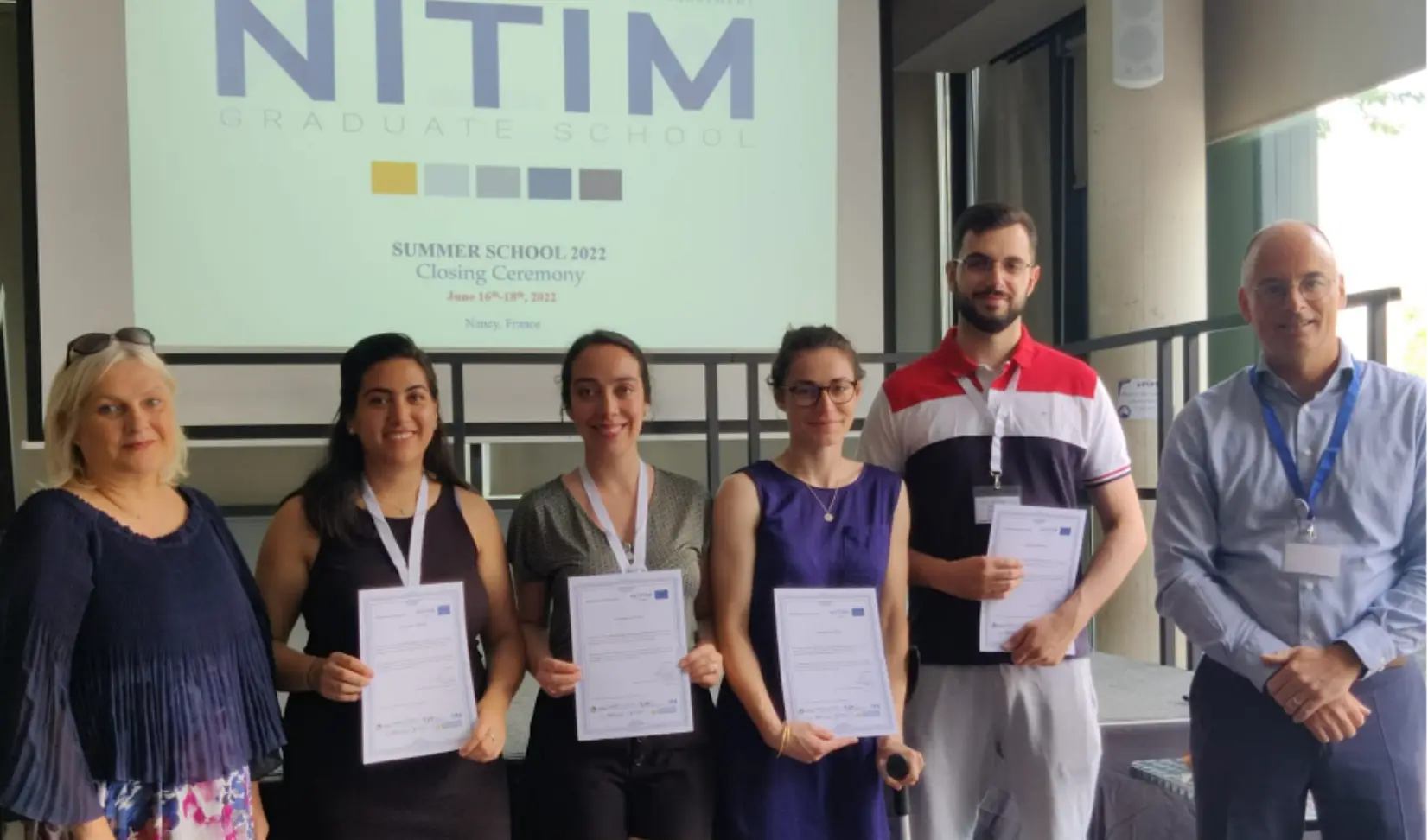NITIM is a network that organizes annual schools to facilitate the development of doctoral research.

As outlined in our Mission Statement, NITIM Schools facilitate the development of doctoral research in the interdisciplinary field of Networks, Information, Technology and Innovation Management, bringing together Ph.D. candidates and faculty members in a focused, in-depth, and constructive discussion of the candidates’ research proposals.
The school is organised once a year in cooperation with the ICE/IEEE ITMC Conference and thus takes place at changing locations. For latest information on the upcoming schools, please visit our News section.
The list of schools that have been organised so far:

NITIM is a Graduate Research School on Networks, Innovation, Technology, and Information Management. It is a community of and for young scholars (PhD candidates, PostDocs, junior and senior faculty) and offers a distinctive developmental mode (and model) of learning and engagement in the field of technology enabled networked innovation.
Across Europe (and beyond) we find different models of PhD education. Except for a relatively small number of Joint or Dual PhD programs, these programs are focused on and controlled by the degree awarding institutions (typically schools).
Getting exposed to other models through events (such as a summer school), time abroad (secondment) and ongoing networking (community) are seen as enriching elements which make the idea of a global academic community tangible and tie into a European tradition of learning as an exchange between international scholars.
* It is a learning community or academic innovation (or living) lab, which involves practices of sharing, reflecting, and critically engaging in a genuine discourse.
* Research keeps knowledge alive, it requires creativity and increasingly involves the crossing of disciplinary and institutional boundaries.
* PhD candidates are not seen as students, who are being taught, but as young scholars taking responsibility and ownership for their research. They are colleagues doing research and preparing to make independent intellectual contributions. PhD candidates are the lifeblood of NITIM and a source for the renewal, revision and extension of knowledge.
* Members of the community are joined by respect for academic values (pursuit of knowledge, respect for academic tradition, collegiality) and practices,
* and an engagement for collaborative learning and academic quality.
* NITIM members share a belief that thorough academic endeavors are beneficial for the European societies and its members.
NITIM is a community of scholars, i.e. PhD candidates – seen as young colleagues – as well as junior and senior faculty, driven by the desire to do research.
Networks, Innovation, Technology and Information Management broadly define the interdisciplinary scope of NITIM.
NITIM is not only organized as a network, NITIM Members share an interest in networked modes of organizing in the economy and society at large and how these modes are shaping and be shaped by technology.
NITIM sees networked approaches as an appreciation of and commitment to collaboration to explore and enact opportunities for improvement and innovation.
NITIM encourages PhD candidates to join the network early in their careers and continue to engage as they progress.
NITIM facilitates “virtual cohorts” of members, as e.g. PhD candidates typically have few peers in their home institutions who are working in a related field and are at a similar stage in their careers.
NITIM is simultaneously a learning environment for faculty.
The community facilitates multi-generational learning and knowledge exchange among it members.
Ongoing engagement with the diverse and rich experience of the NITIM community creates a push for the members to reflect and professionalize their work.
NITIM provides training and coaching in line with a developmental approach to academic life.
NITIM takes an inclusive approach and welcomes PhD candidates from different types of programs (full-time, part-time, aiming for a career in academia or industry, from collaborative PhD programs).
We recognize that the European landscape of higher education is characterized by a high level of diversity. NITIM embraces this diversity in an open and inclusive manner as much as those who want to join it agree with our set of values (Proposition 2).
While the independence of academia from economic and political control has been a hallmark of the European university system (Freedom of research and teaching; “Freiheit von Forschung und Lehre“, see also the Magna Charta Universitatum, this freedom (or independence) involves a responsibility and an obligation towards society who grants not only freedom but also significant resources.
NITIM members are engaged scholars, who recognize that while academia and practice follow different rules, engaging with practice is an inherent (and demanding) part of academic work in their respective fields.
NITIM does not and cannot award PhD degrees. It functions as a platform for collaboration, learning, and innovation and aims to offer distinctive elements of PhD education and a developmental approach towards learning for faculty to the participating institutions.
NITIM aims to be recognized for its contributions to PhD education, in the language of management: it operators as an outsourcing service provider with defined service level agreements.
NITIM is engaging with degree awarding institutions to define the supporting role it can provide.
From a network point of view NITIM defines a pool of members (community), some of whom are engaged in distinct projects (e.g. a summer school).
NITIM is integral to the doctoral educational landscape. We function as a collaborative platform, enhancing PhD programs through partnerships with degree-awarding institutions. Our role is to supplement the academic journey, acting as a service provider with a focus on development and innovation. Through projects like summer schools, we create a dynamic network that fosters multi-generational learning and professional growth for our diverse community of scholars.
NITIM focuses on three priority topics that encompass a range of topics critical to understanding and shaping the future of technology and innovation. Our research includes "Entrepreneurship & Innovation", "Digital Transformation and Digital Technologies" and "Engineering and Systems Integration". Each topic represents an important aspect of our comprehensive research efforts.